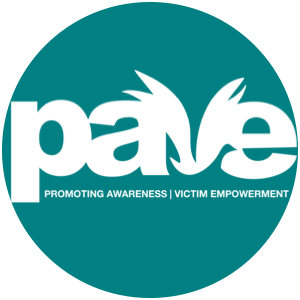How Emotional Support Animals Help Survivors
Did you know that animals can be a vital asset in a survivor’s journey to recovery? Emotional Support Animals (ESA) are animals that are designated to provide support, comfort and relieve symptoms of those who have experienced trauma or mental health issues. For survivors, ESA can make a tremendous difference in overall wellbeing and quality of life.
How ESA Support Survivors
Survivors of sexual assault and/or abuse are at a higher risk of developing depression, post-traumatic stress disorder (PTSD), substance use disorders, eating disorders, anxiety, and other mental health issues. However, ESA can provide a silver lining for those who are struggling.
Many studies have shown that support animals and pets can be powerful tools for survivors and those experiencing mental un-wellness. ESA have the ability to help both the survivors' psychological and physiological health.
ESA have been proven to help with (Counseling Today and VeryWellMind):
Lowering anxiety
Trauma support
Alleviating loneliness
Enhancing social engagement and interaction
Normalizing heart rate and blood pressure
Reducing pain and stress
Increasing pleasure
Reducing depression
It’s important to remember that these animals are not just pets- they are essential support
systems for survivors.
ESA Certifications
While all animals often support their owners, to be considered an ESA, the pet must be prescribed by a medical practitioner who deems the animal as necessary for the owner’s wellbeing (Counseling Today).
Having the official title of ESA can be vital for some survivors. The U.S. The Department of Housing and Urban Development allows ESA to live in designated “non-pet” housing, eliminating a common barrier of finding housing that accommodates pets. This adoption and certification process can be tedious, time consuming and expensive at some shelters.
That’s where The Embark Foundation comes in.
The EmBark Foundation
PAVE Intern and Co-Founder of the EmBark Foundation, Sammy Michaels, with her ESA Mac
The EmBark Foundation, founded in Madison, Wisconsin, is a non-profit organization that works with survivors to match them with an ESA, funds the adoption, and supports them through the certification process and beyond. Co-founded by PAVE Intern, Sammy Michaels, EmBark works specifically with survivors of sexual assault, child abuse, domestic violence and intimate partner violence.
Since its founding in January 2021, EmBark has fully funded and supported 2 ESA adoptions for survivors, making a genuine difference in the lives of both the survivor and the animal. EmBark adopts exclusively from shelters, saving them from being euthanized.
EmBark’s goal is to “foster a safe and comfortable environment for survivors and their allies while promoting awareness for the experiences and healing process of survivors” according to their website.
PAVE’s EmBark on Healing Campaign
PAVE is excited to announce our new intern-led campaign EmBark on Healing, created in collaboration with The EmBark Foundation. At PAVE, we believe that survivors deserve the best possible support for their healing journey. Together, we hope to make ESA more accessible to survivors and provide healing and hope.
Learn more in our EmBark on Healing Campaign on PAVE and EmBark’s social media pages on August 2-6.
Keep up with the campaign:
Follow PAVE
Instagram: @PAVEinfo
Twitter: @PAVEinfo
Facebook: Promoting Awareness | Victim Empowerment
Follow EmBark Foundation
Instagram: @EmBarkFoundation
Twitter: @Embarkwi
Facebook: EmBark Foundation, Inc.
About the Author
Hi there! I’m Bella Mutert, a social media and marketing intern at PAVE. I am a senior at DePaul University studying Communications, Media, PR & Advertising. As a survivor myself, I am thrilled to be interning at PAVE and making a difference in other survivors’ lives. I am passionate about sharing holistic healing tools with survivors and raising awareness about the intersection of sexual violence and mental health issues/ substance use disorder. Thanks for reading!


